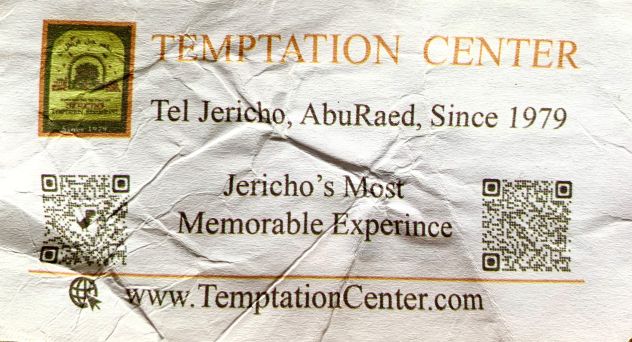| Remembering Mike Kellogg
|
|
| Thursday, July 06, 2023 | |
Frankly, I was struggling—in need of an honest perspective, That’s when I reached out to Mike Kellogg. A mentor at Moody Radio, Mike was the much-beloved voice heard on Music Thru the Night. I was in the process of becoming ordained and needed a second set of eyes on a sermon outline. As I handed him my stack of note pages, his eyes were laser locked onto mine. More than a stare, it was more like a glare. Glasses slid half-down his nose, he jostled those papers on his (always) cluttered desk. Then he growled as he graveled, “This had better be about the Bible! Not some story or cute illustration.” Honestly, I don’t even recall his assessment of that sermon outline. But I’ve never forgotten his admonition. I hear it nearly every time I prepare a sermon. The thing is, Mike Kellogg actually lived this way—his life truly was about the Bible. On another occasion, I was stressed out about a friendship gone sour and launched into the story sitting in Mike’s office. But before I even finished, I heard Michael softly quoting from Philippians 2:3, “Let nothing be done through strife or vainglory; but in lowliness of mind let each esteem other better than themselves.” I tried to interrupt with “Mike, I hear ya, but you don’t understand.” His only response was to continue his recitation: “But in lowliness of mind, let each esteem other better than themselves.” Frustrated, I countered, “Mike, you don’t get it!” Softly, he insisted, “Let this mind be in you which was also in Christ Jesus….” And Mike went on to finish the passage. It’s a passage I, too, have now memorized—thanks to Mike Kellogg, whose life really was about the Bible. What’s your life about? Someday, we will all reach the end of our earthly journey, as Mike now has. Hebrews 9:27 assures us, "It is appointed unto men once to die—and after this the judgment." What then? What will YOU say when you stand before Almighty God? HINT: It had better be about the Bible!
Believe on the Lord Jesus Christ and you will be saved. –Acts 16:31
|
|
| He Just Blesses Us!
|
|
| Thursday, June 29, 2023 | |
At 40, he was dead—and nobody knew. For several days, his body slumped, then stiffened in the Lazy-boy chair—his favorite. Finally, someone called the police, suggesting a wellness check. Just hours after his body was hauled away, my son Tim was asked to help clean out the house. “We’ll pay ya,” he was told. The money sounded good, as Tim was on the hunt for a pair of high-quality speakers. But a casket full of cash would not be worth what he encountered there next. Knee-high garbage proved this guy was well on his way to becoming a hoarder. There was a path to his chair—which was adjacent to two-gallon jugs full of (forgive me) urine. The place smelled like a mixture of sewer odor, dead mice, and general decomposition. The entire home was covered in mouse poop, and spider egg sacks covered the legs of the furniture. Dead flies and fly larvae were so thick, they covered the entire windowsill. Boxes from more than a thousand bottles of hard liquor made mountains of cardboard (it took Tim’s friend two hours just to flatten the cartons). Working more than two days, they finally emptied the house, filling two large dumpsters. Ironically, buried in the rubble, was a pair of speakers. But not just any speakers, these were the very speakers Tim was wanting to buy. And the owner said he was free to take what he wanted. With a bit of elbow grease, they cleaned up beautifully—and they sound awesome. Tim told me, “I really didn’t want to clean out that house. It was hideous. But God seemed to bless me for the effort.” Then he added, “I’m not suggesting that’s how God operates every time we obey Him. Still, once in a while, He just blesses us.” Tim's right, of course. It's always right to point to the kindness of God. There are a thousand reasons I’m proud of my son, Tim. Now you know a couple of them.
|
|
| Temptation Center
|
|
| Thursday, June 22, 2023 | |
In about 1400, B.C., the walls of Jericho fell. Today, a literal stone’s throw from the ruins of ancient Jericho stands the Mount of Temptation Restaurant. Think grilled kabobs, squishy-soft pita, Mediterranean salads, and fresh knafeh—the ultimate Arabian spun pastry. Given the vast edible spread, there’s no shortage of temptation from a diet perspective. Of course, the temptation the restaurant is named for is that of Jesus, who spent 40 days in the wilderness being tempted by the devil—and yet did not sin. Like any self-respecting tourist destination, the restaurant also features a gargantuan gift shop. As you enter this modern oasis, you are handed a coupon promising a 10% discount off anything in the store. How could one resist? Staring at the coupon, I chuckled at the typo describing this place as Jericho’s most memorable “experince.” I also smiled at the mention of their website: temptationcenter.com. Can I be transparent with you? When it comes to battling my sin nature, I don’t need a ten percent off coupon. Or an invitation to visit a “temptation center.” Some days, I feel like I am my own temptation center! I am tempted to:
In short, I am tempted to indulge my eyes, my stomach, my mind—my everything! But should this be surprising? Puritan Thomas Watson declared, “We have a storehouse of corruption within, and the least thing will increase this storehouse. Therefore, it is dangerous mingling ourselves among the wicked.” Consider that when the disciples asked Jesus to teach them to pray, Christ’s model prayer included the request, “Lead us not into temptation.” If it were a minor issue, temptation would not have been highlighted. Maybe, like me, that’s a reminder you need today. Temptation—your very personal, very next temptation—is just around the corner.
|
|
| Pray for the Peace of Jerusalem
|
|
| Thursday, June 15, 2023 | |
Psalm 122:6 says, "Pray for the peace of Jerusalem: May they prosper who love you." That verse pops up in 3-D as we travel throughout Israel. But how can there be peace in the Middle East when Lebanon, Syria, Iran, Iraq, Kuwait, Saudi Arabia, and Yemen do not recognize Israel as a state? Nor does Afghanistan, Bangladesh, or Pakistan. Indeed, the Palestinian Authority, Hezbollah, Hamas, and most of the Muslim world make no secret of their desire to wipe Israel off the map. This is not to say that Israel is perfect. No country is. Though ultimate peace in the Middle East (or the world, for that matter) will not last until the Prince of Peace returns, it is hardly a pointless exercise to pray for the peace of Jerusalem. A story proves the point. As our tour bus approached the outskirts of Jerusalem, our guide, Dr. Charlie Dyer, played The Holy City, a classic song that soars with the refrain:
With the music reverberating throughout the bus, I heard our Israeli guide, a Messianic believer, singing with gusto. No surprise there. But she was nearly drowned out by the voice of our bus driver, a born-again Arab! On paper, they are supposed to be at war. The world cannot make sense of this. And no wonder. Jesus promised a peace entirely different than the cheaper brand the world is selling. Odd—the simple act of just getting along might well be the best commercial for Christianity. But why not raise a few eyebrows yourself? I dare you—baffle the unbelieving world around you today by showing kindness, respect, and love to someone you're "not supposed" to like. Maybe—just maybe—your selflessness will make someone wonder about Jesus—our Prince of Peace!
|
|
| Is VBS Still Viable?
|
|
| Thursday, June 08, 2023 | |
Is VBS still viable?
In a digital world, the idea of vacation Bible school feels—let's admit it—analog.
Now that it’s June, vacation Bible school can’t be far behind. But when churches today strategize outreach, they typically tout sleek digital products, YouTube content, and Zoom services. Yet the grand old tradition of kids inviting other kids to a church-based VBS program is still alive and well.
Joslynn is living proof. At the age of six, she attended a neighborhood VBS program. Though a lot of her memories of that week have grown fuzzy, Joslynn distinctly recalls watching an engaging puppet sketch.
"One puppet was trying to buy something at McDonald's with fake money. They made the obvious point that using counterfeit money gets you in trouble with police officers." And the spiritual parallel? Joslynn remembers it: "When you sin, you're in trouble with God. But through Jesus, you can be forgiven."
Joslynn doesn't recall her teacher's name, only that "she had curly hair." But she does remember feeling convicted that she needed to be saved. So she and her teacher prayed together in the church's boiler room. That's where Joslynn received Christ.
Now fourteen, I asked Joslynn bluntly if she thinks VBS is still a good idea. Without hesitation, she affirmed, "It's still a good idea because it can speak to children who might not get to church otherwise. It can lead them to Christ."
Summer is here. VBS is coming to a church near you—maybe yours. I urge you—to show up and volunteer. I urge you—to take your kids, your grandkids.
God is at work. Souls are at stake. And maybe—just maybe—VBS will be the tool God uses to save your loved one!
|
|
| Records per page First Prev 8 9 10 11 12 13 14 15 16 17 of 129 Next Last | |
 Jon Gauger Jon Gauger |
|||||||||||||||
| Thursday Thought | |||||||||||||||
|
|
|||||||||||||||
Recent Posts
|



